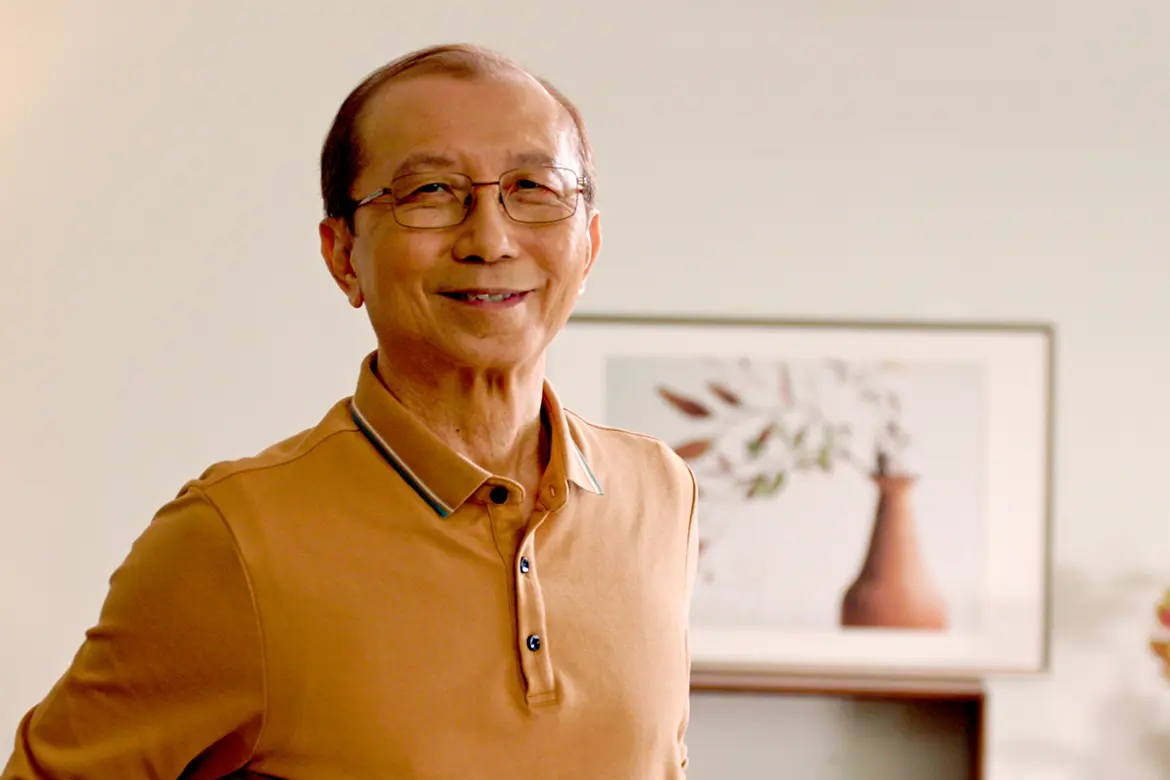Semi-retiree Sebastian Ang had been suffering from piles for many years, and he had gotten used to finding blood in his stools.
One day, his wife noticed the blood stains on the toilet bowl and felt uneasy.
She told Mr Ang, “I think you had better see the doctor. There’s something different this time.”
Mr Ang, 65, brushed it off as his piles acting up again, but listened to his wife and went for a colonoscopy. A colonoscopy is a medical procedure that uses a long, flexible tube with a camera on the end to examine the interior of the colon and rectum for abnormalities or disease.
When Mr Ang awoke from the colonoscopy procedure, the doctor came up to him and said, “You have a 2cm tumour in your rectum and you need to go for a major operation.”
It was rectal cancer. Mr Ang was at a loss for words.
“All along, I thought I was very healthy,” he said. “I was really shocked and unsettled.”
He spent two days unable to process the news properly, poring over online articles to learn more.
In Singapore, colorectal cancer is the second leading cause of death among both men and women, according to the Singapore Cancer Registry Annual Report 2021.
Colorectal cancer starts in the colon or rectum, parts of your digestive system that process food. This type of cancer usually develops slowly, taking years to form. It often begins as a small, harmless growth called a polyp on the inside surface of the colon or rectum. Although these polyps are not cancerous to start with, some can turn into cancer over time.
A common procedure in treating colorectal cancer involves removing part of the colon, with some cases requiring the patient to use a stoma bag for faeces collection.
Mr Ang’s heart sank as he dreaded having to wear a stoma bag for the rest of his life.
He asked himself if he was prepared to go for a major operation.
A second opinion counts
With his anxiety mounting, Mr Ang decided to seek a second opinion.
His friend recommended him to see Dr Chong Choon Seng.
Dr Chong, a colorectal and general surgeon at Mount Elizabeth Hospitals, is experienced in performing minimally invasive surgeries and teaching the techniques of colorectal surgery. He has also authored medical journal papers on the topic and serves as an adjunct associate professor in the Department of Surgery at the National University of Singapore.
When Mr Ang knocked on his door, Dr Chong saw how worried the semi-retiree was and thus sought to assure him. Said the doctor, “Most of Mr Ang’s medical investigation was already done, and with those records, I could quickly advise him on the next steps.”
To Mr Ang’s relief, the doctor had good news to share.
Firstly, Dr Chong’s assessment of the tumour indicated that Mr Ang’s cancer was probably in the early T1 stage.
In the context of colorectal cancer, "T1" and "T2" refer to stages that describe the depth of invasion or how far the cancer has grown into the walls of the rectum.
T1 and T2 are considered early stages of cancer. At the T1 stage, the cancer has grown through the innermost lining of the rectum. At the T2 stage, the cancer has grown into the muscle layer of the rectum.
Secondly, Dr Chong recommended a type of surgery that would not impact Mr Ang’s quality of life.
Preserving quality of life
Said the doctor, “I told Mr Ang that (with his condition), the surgery would be minimally invasive and he would not need to wear a stoma bag. I then explained to him about the differences in the treatment between T1 cancer and T2 cancer.”
Dr Chong said, “For a T2 cancer, you have to remove the entire rectum, you cannot just remove the lesion as you might end up leaving some lymph nodes behind.”
“If we have enough evidence that it is a T1 cancer, we can perform a local re-section or what we call trans-anal minimally invasive surgery. This involves inserting instruments through the anus to remove just the lesion while sparing the rest of the rectum.”
“The good thing about such surgery is that it is a lesser surgery, so the patients usually recover faster as compared to a major resection. A major resection means that you need to have a stoma, the patient needs to defecate into a stoma bag and he needs to learn to adapt to a new lifestyle.”
“You can see the stark difference between the two options and that’s why trans-anal minimally invasive surgery is a very attractive option for patients.”
Mr Ang underwent the surgery under Dr Chong’s steady hands and he has since bounced back to resume a normal life.
Said Mr Ang, “Dr Chong really empathised with the situation that I was in, and now my quality of life is not compromised.”
“After the surgery, I reflected on things that I didn’t do enough. For example, I didn’t go for health screenings even though they are not expensive. And then there are government health schemes and many good hospitals here.
“There’s no reason not to go for a check-up.”
Dr Chong also advised Mr Ang that surviving cancer is a long journey but it need not be a burden.
“I encourage all my patients to have a positive outlook on life. They should follow through with regular checks and not worry about the results,” said Dr Chong.
“If a person is positive, it also affects his overall physical being. That means he will have energy and have better immunity. These things can contribute towards a better cancer-free survival.”












